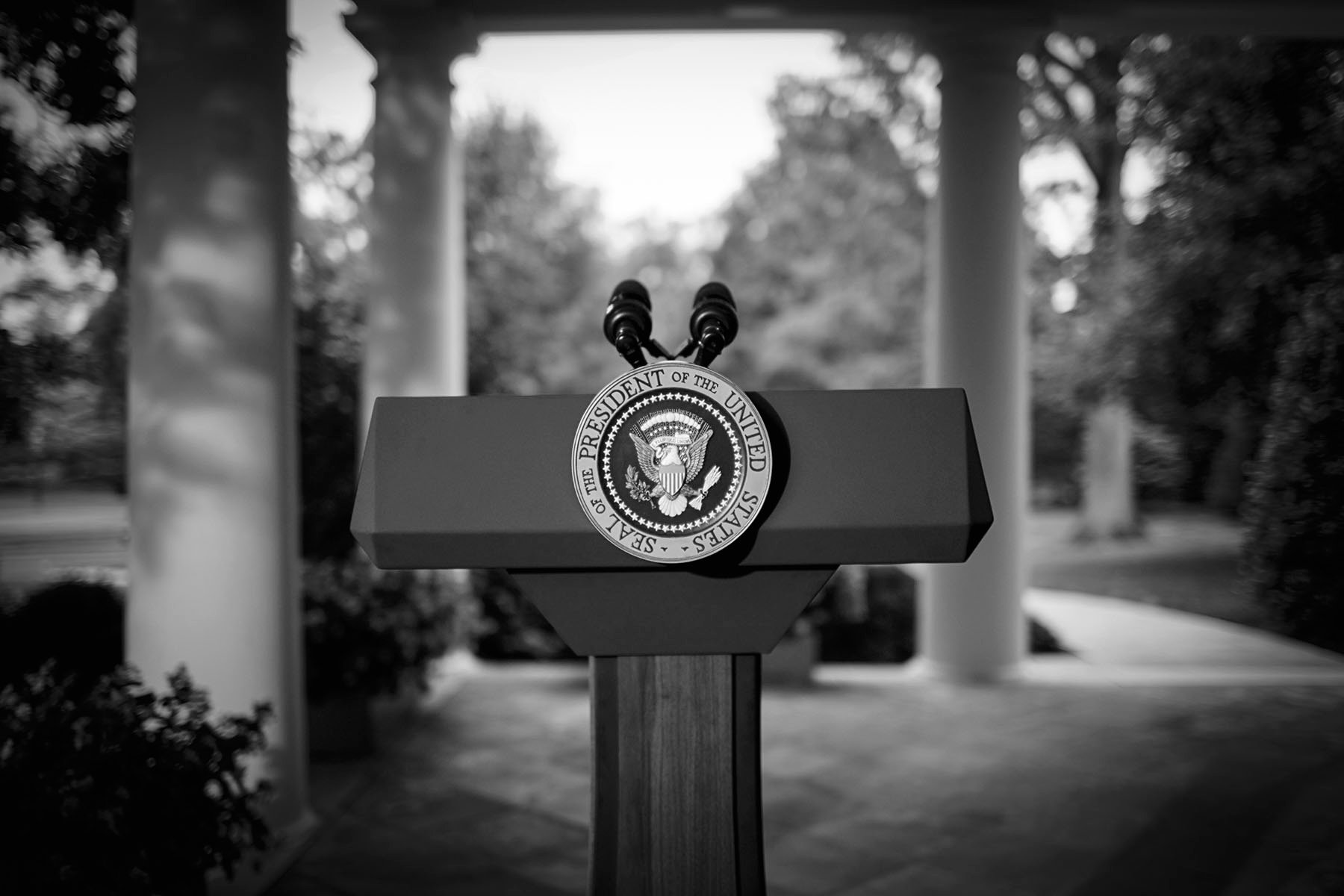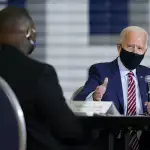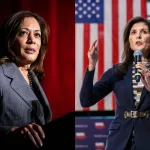Your trusted source for contextualizing Election 2024 news. Sign up for our daily newsletter.
Do you want Donald Trump back in the Situation Room?
Days after the former president’s chief of staff — a retired four-star general — said Trump fits the definition of a “fascist” and a week after it was revealed that his former top military adviser described him as “a fascist to the core” and “now the most dangerous person to this country,” this is the question Kamala Harris’s campaign wants voters to consider as they head to the polls.
“The people who know Donald Trump best, the people who worked with him in the White House, in the Situation Room, in the Oval Office, all Republicans who served in this administration, his former chief of staff, his national security adviser, former secretaries of defense and his vice president have all called him unfit and dangerous,” Harris said Wednesday night in a CNN town hall, when she said she agreed with Marine Gen. John Kelly that the former president “is a fascist.”
With less than two weeks to go before Election Day, the Democratic presidential nominee is making the case that she’s a stable leader who cares about alliances and will listen to military and civilian advisers. Fitness to lead might not be the central issue in her campaign — the economy and abortion take top billing — but it transcends foreign and domestic policy. It’s the culmination of messaging — and warnings from high-profile military leaders who served under the former president — that surfaced during Joe Biden’s first match-up against Trump and arguably originated during the 2016 campaign.
Yet even as Trump’s leadership continues to be denounced and his fitness for office repeatedly called into question by those who served in the highest levels of his last administration, it is the sitting vice president who has had to prove her readiness, as evidenced by national polls since she became the Democratic Party’s nominee. These polls have consistently shown Trump leading on the question of who would best handle matters of foreign policy and defense. It’s a change from four years ago, when Trump trailed then-Democratic presidential candidate Joe Biden on the same question by a 12-point margin.
“It’s not a matter of qualifications or credentials. If it was, Hillary Clinton” — the former senator and secretary of state — “would have been elected,” said Joan Johnson-Frees, professor emeritus of national security affairs at the U.S. Naval War College and a senior fellow at the non-governmental organization, Women in International Security.
“It’s about the stereotypical biases that men are leaders and women are subservient, and it’s about breaking that stereotypical perspective among both men and women,” Johnson-Frees said. “The polls show that a large part of the electorate believes that women can have these qualifications, have these leadership traits. But again, we are taught, just even from rhetoric, that men are the actual leaders.”
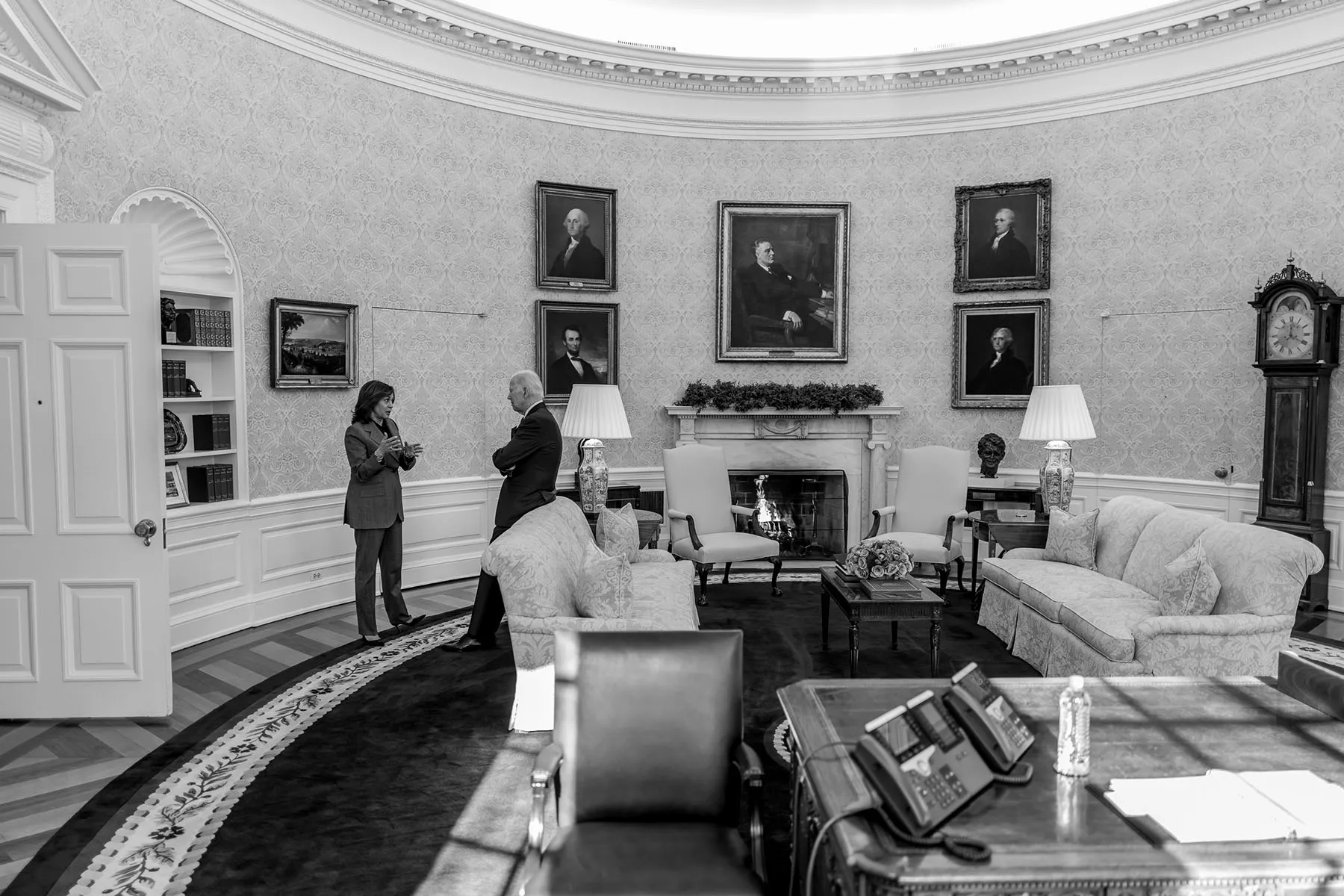
Trump, who has been convicted of 34 felonies and found liable for sexual assault, defamation and fraud, has leaned into these stereotypes, playing into sexist and even sexualized images to question Harris’ abilities to lead the country. When asked how America’s enemies would respond to Harris if she became president, Trump told Fox News, “I think they’ll walk all over her. She’ll be so easy for them. She’ll be like a play toy. … And I don’t want to say as to why, but a lot of people understand it.”
This is what Johnson-Frees called the “real man” rhetoric.
“There have been women leaders in many other countries, many other democracies, but we can’t seem to get over it here, especially now, because what’s being pressed upon us is this idea of ‘real men.’ You have to be a ‘real man,’ and that ‘real men’ are leaders,” she said.
Ambassador Cindy Courville underscored the ways in which the vice president’s racial and cultural background add additional barriers.
“I see the similarities between Hillary and Kamala, but then Kamala has the ‘other’ of being a woman of color, and that adds a whole separate layer because you can’t unzip the suit. When you look at me, you know that I’m a woman of color,” said Courville, who was appointed by former President George W. Bush as the first U.S. ambassador to the African Union. “You have to have that fundamental faith and belief in yourself that you are protecting ideals bigger than you and dealing with people in spite of what they see.”
Neither Harris nor her campaign has directly addressed the sexist or racist dog whistles about her fitness to lead, which Johnson-Frees called a deliberate choice.
“It looks to me like she’s taking a page out of the Angela Merkel playbook of ‘don’t make gender an issue,’” she said, referring to the former German chancellor, whom Trump also insulted and reportedly spoke about in derogatory terms on at least several occasions. “It’s a no-win. It’s an absolute no-win. So don’t play into it. Avoid it as much as you can.”
Instead, the Harris campaign has deployed a two-pronged attack: Trump is unfit to serve and she is ready to lead. Allies and surrogates have devoted considerable time and money to stay on the offensive.
“The polls that show Trump being more trusted on national security issues should be taken seriously, but there is a reality underneath the findings that are a positive for Vice President Harris and a negative for Trump, which is that an important part of people feeling safe and secure with somebody as a commander in chief is the person’s temperament,” said Harris pollster Geoff Garin, whose Hart Research also conducted polling for the Democrat-aligned advocacy group National Security Action in seven battleground states in September.
“The ‘commander in chief question’ goes to something very fundamental that, in important ways, actually transcends ‘the commander in chief question,’ which is someone’s fitness for office,” Garin said. “An important part of our argument against Trump is that he is fundamentally unfit to lead the country, and part of the same reasons why he’s unfit to lead the country, we would also argue with impact is that he is unfit to serve and to be trusted as a commander in chief for the next four years.”
That’s been the strategy deployed by those who served with the former president in that capacity — the decorated military brass whom Trump has said he picked straight out of “central casting,” presumably because they represent “real men.” Instead, “my generals,” as Trump frequently called the three- and four-stars when they were in his favor, have led the charge against his return to office. And they have been joined by an array of Republican and Democratic leaders within and affiliated with the national security community. Trump and his campaign have dismissed these warnings, choosing to counter them instead by insulting those who have issued them.
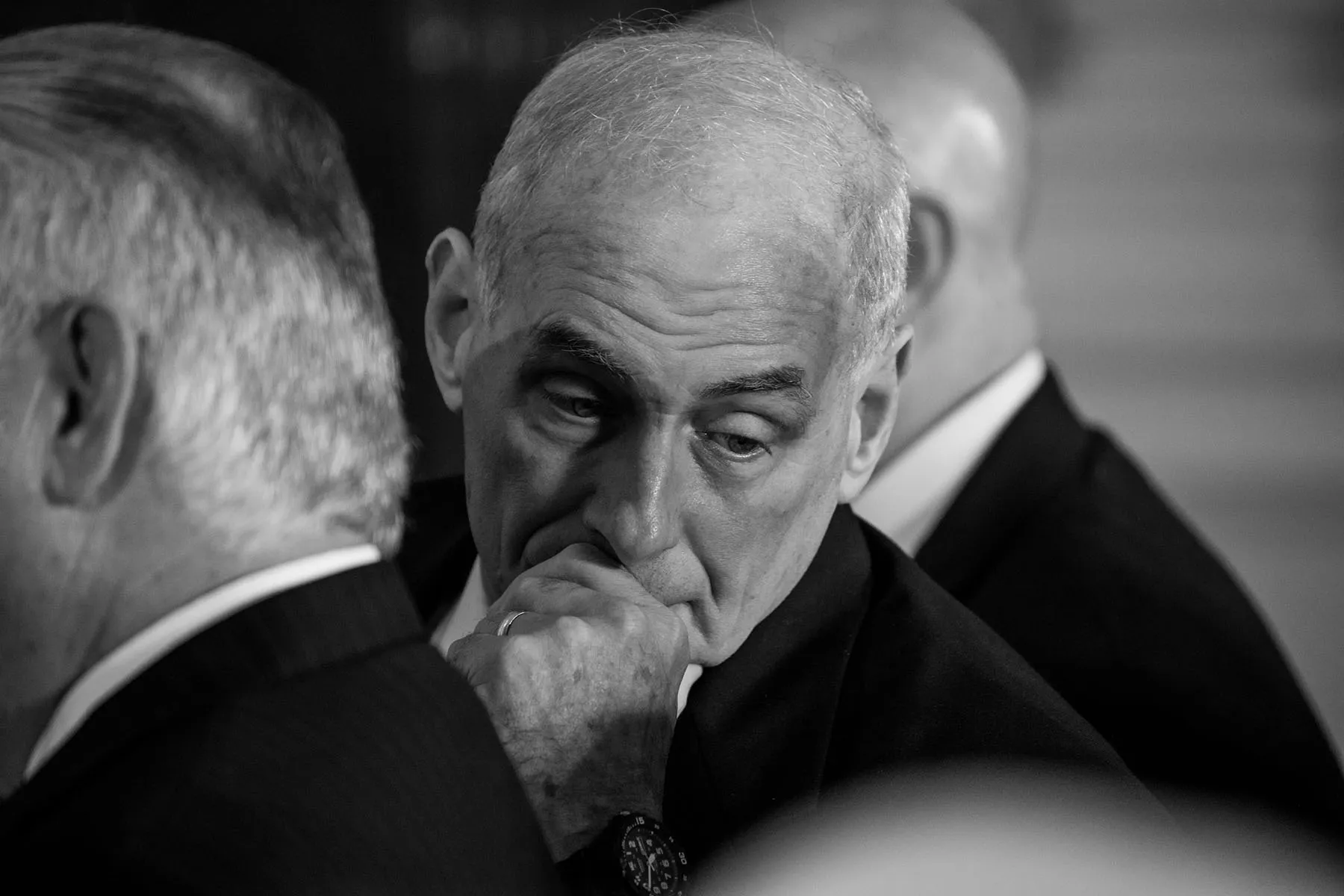
“I used to brief Dick Cheney when I was at the National Security Council. Let me tell you, he is talking country,” said Courville. Cheney, a Republican who served as vice president under President George W. Bush, has also said he will vote for Harris, Courville interacted with him closely while serving as special assistant to the president and senior director for Sub Saharan Africa.
Last month, more than 740 current and former national security officials endorsed Harris in a letter that read in part: “This election is a choice between serious leadership and vengeful impulsiveness. It is a choice between democracy and authoritarianism. Vice President Harris defends America’s democratic ideals, while former President Donald Trump endangers them.”
Signatories included four former defense secretaries — William Cohen, Chuck Hagel, Leon Panetta and William Perry — and also former Secretary of Homeland Security Jeh Johnson, former Secretary of Homeland Security Janet Napolitano and former Secretary Clinton.
Rose Gottemoeller, the first woman to serve as deputy secretary general of NATO and whose background is — in her own words — the “very male world of nuclear diplomacy,” also signed the letter.
“[Harris’] ability to deal with every kind of human being from the best to the worst in a firm and authoritative way will serve her very well in working with foreign leaders. She’ll have to deal with cultural misogyny, which seems to be a deep strain of American culture,” said Gottemoeller, who in 2009 became the first woman to negotiate a nuclear arms control deal with Russia. She added: “That’s definitely been my experience.”
“If you’re an effective and authoritative female figure, then you often get labeled ‘the bitch,’ you know? I’ve tried, in my own career, to not end up being a bitch by just being so nice all the time. But then people say, ‘Oh, she’s too nice. She can’t get things out of the Russians we need,’ so I’d slam my hand on the table, and it was all for show, really, because, in my view, the best way to get things done as they say back in the Midwest, where I’m from, ‘you catch more flies with honey than with vinegar.’”
The letter followed a similar declaration signed by about 100 former Republican officials, who called Trump “unfit to serve.” It became public two weeks after a group of retired generals defended Harris from Trump’s attacks regarding her involvement in the U.S. military withdrawal from Afghanistan.
The goal in these warnings and the messaging around them— intentionally though not without irony — has been to question the Republican presidential nominee’s “erratic,” “unstable,” prone-to-flattery temperament in contrast to characteristics that have often been ascribed to men in positions of authority.
“Trump has a really big vulnerability in terms of how voters view his temperament in general, and also in national security situations,” Garin told The 19th. “On the one hand, they project some sense of strength onto him. They also see him as kind of impulsive, as someone who doesn’t think things through, someone who doesn’t listen to advice, and someone who is really driven by his own egomania — all of those are really serious and significant defects in a national security leader from a voter perspective.”

These are weaknesses the Harris campaign has sought to exploit both directly and indirectly, in part by presenting her in deliberate contrast, a strategy that has been picked up on by her surrogates. They have repeatedly referred to her as an “effective leader,” someone who has “allegiance to the rule of law, the Constitution, and democracy,” and is “steadfast” and “fit to serve as our commander-in-chief.”
She’s already been in the Situation Room, noted Bishop Garrison, who served in the Biden-Harris administration in the Senior Executive Service and as the senior adviser to the secretary of defense for human capital and diversity, equity, and inclusion. He joined the hundreds of bipartisan former national security officials who signed the public letter endorsing Harris.
“Look, she’s one of the most capable, qualified candidates we’ve had in history, arguably, just behind the last woman,” added Garrison, an Army veteran who served two tours in Iraq, and was the deputy foreign policy adviser on Clinton’s 2016 campaign.
It’s a closing argument that Garin believes has gained traction. Since the National Security Action battleground poll in September, the campaign’s internal polling has shown the gap between Harris and Trump on the commander-in-chief question has all but disappeared.
“People have a greater appreciation for her strength, but also a greater awareness for his temperamental unfitness for the job,” Garin said. “We think that the needle has moved and moved in her direction.”
To check your voter registration status or to get more information about registering to vote, text 19thnews to 26797.
